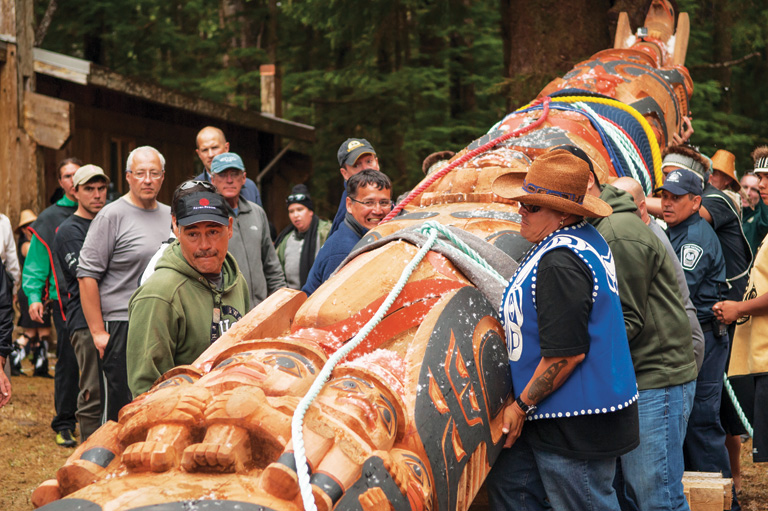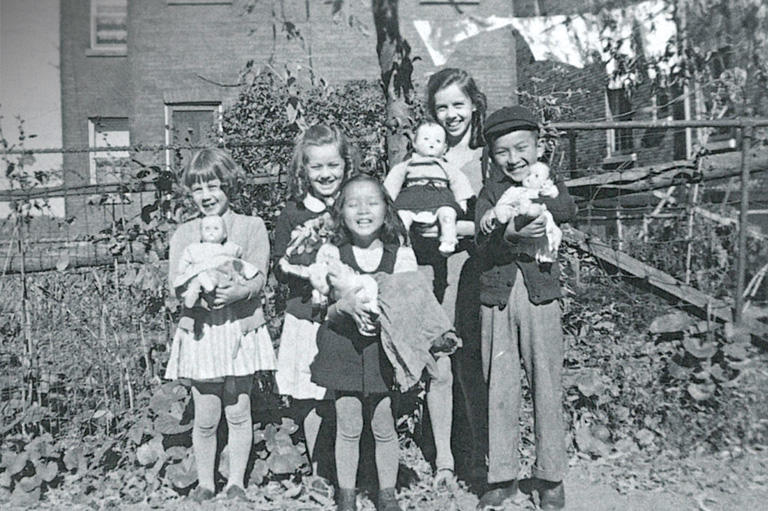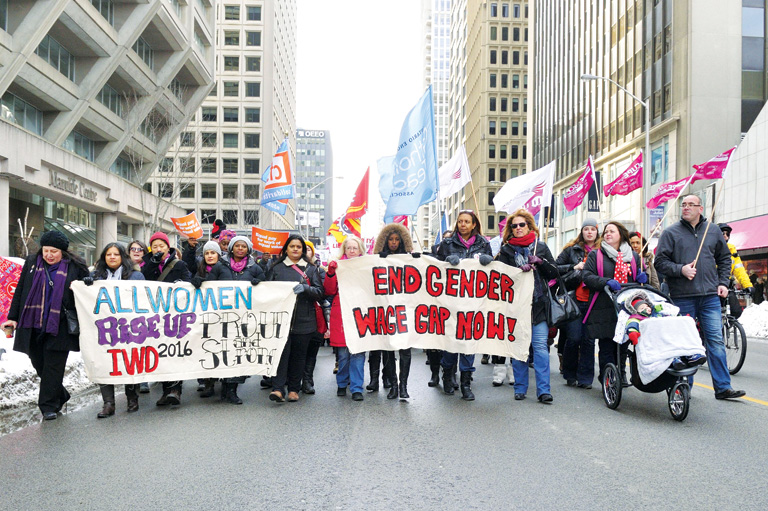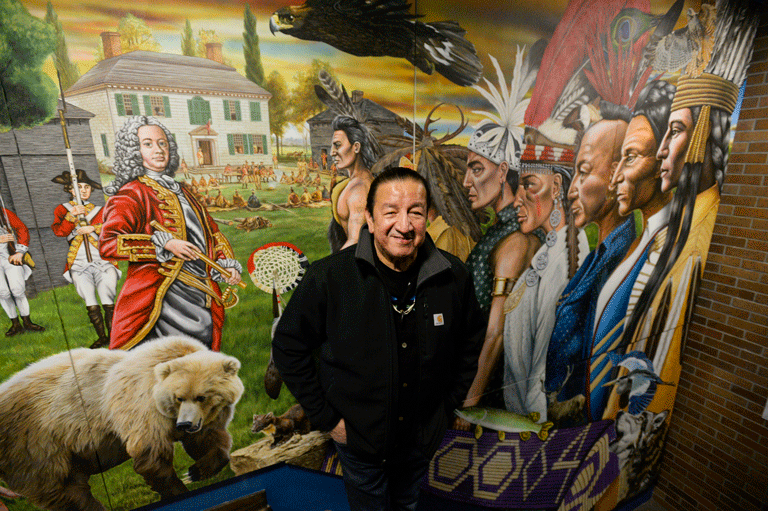Confederation Derailed
Big Question
Does federalism have a future?
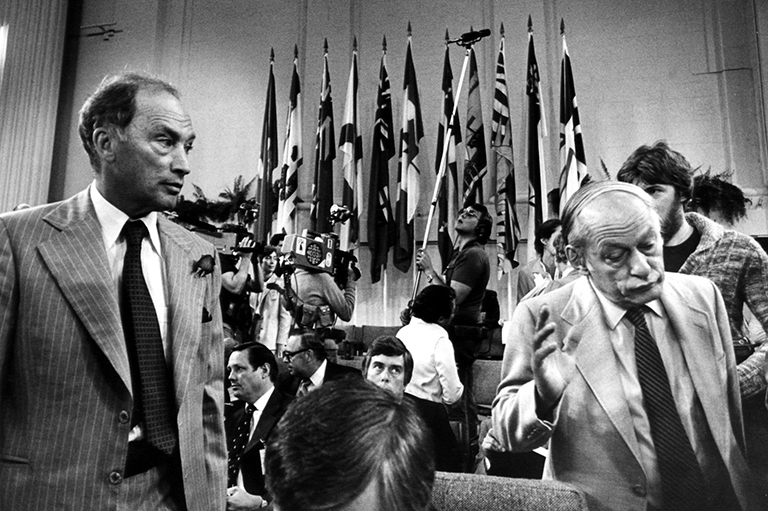
For the better part of fifty years, Canadian politics was consumed with the question: Is Quebec a nation? Should it be recognized as such, constitutionally or otherwise? From the early “special status” and “deux nations” formulations of the Lester Pearson and Robert Stanfield era, to the debates over the “distinct society” clause in the Meech Lake and Charlottetown accords, to the resolution passed by Parliament under the Harper government recognizing that “the Québécois form a nation within a united Canada,” the question was never far from the headlines.
As nationalist fervour has subsided in Quebec (whether because of former Prime Minister Stephen Harper’s resolution or in spite of it) the push for “national” status and recognition has passed to Aboriginal groups, including First Nations. It was at one point proposed that “the Indigenous nations of Canada” — all six hundred of them — should be recognized in the Constitution of Canada.
While that idea may not have gotten much traction, the notion that the concerns of Indigenous Canadians should be dealt with not as those of other citizens of Canada are but via “nation-to-nation” negotiations is increasingly accepted as orthodoxy, even if no one quite knows what it means.
The one idea that is politically impermissible to express is that Canada is a nation. The term has more or less disappeared from use, like “Dominion.” There are vestigial references to the Department of “National” Defence and such, but the more usual term for any institution of the only government that represents all Canadians is “federal.” (In Quebec it is not Canada that is defended but “federalism.”)
It is permissible in certain quarters to talk of a kind of residual nationhood representing some unspecified part of Canada — the phantom nation of English Canada, for example, implied by concepts of deux nations, or the nation that would presumably engage in nation-to-nation negotiations with Indigenous Canadians. But the idea that there is some broader Canadian nation that includes everyone, that transcends and embraces those nations that may be contained within it, is more or less taboo.
Try to imagine the response if it were proposed that Parliament should recognize the existence of a Canadian nation, or that a clause be added to the Constitution instructing that it is to be interpreted “in a manner consistent with the recognition that Canada is a nation.” Unthinkable. It would be seen as an intolerable affront. Indeed, this is more than just a thought experiment.
When, during an early round of the patriation wars (the debates about bringing Canada’s Constitution home and out of the jurisdiction of Britain’s Parliament), the federal government issued a draft preamble that began, “We, the people of Canada,” the response from Quebec nationalists was apoplexy. The draft was hastily withdrawn.
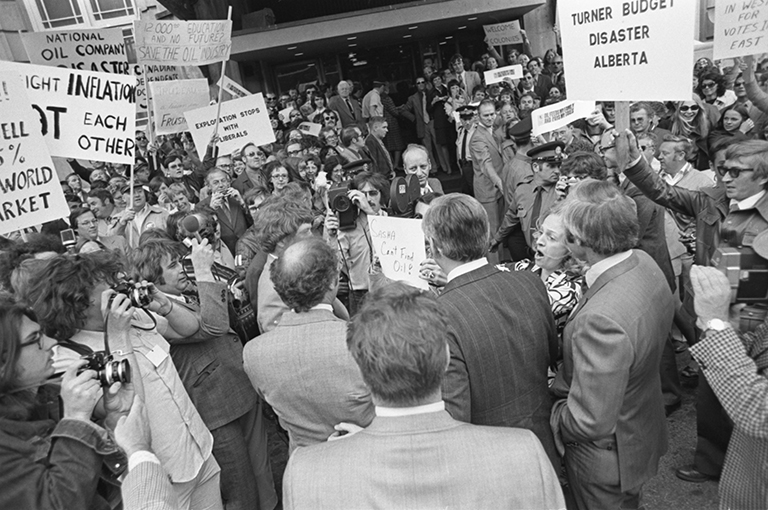
The “one Canada” championed, in different ways, by former prime ministers John Diefenbaker and Pierre Trudeau has ceased to be. Rather, we are taught to say that Canada is a country, a state, a federation, or, in former Quebec premier Robert Bourassa’s incomparably dry formulation, “a superstructure.”
But a nation? Perish the thought. This is, needless to say, odd.
The Americans, diverse as they are, have no difficulty in referring to themselves as a nation. The French, likewise, or the Germans, or Italians, or most members of the United Nations. Even the Swiss, though they speak four languages and live under perhaps the most decentralized system of government on earth, still have a robust sense of nationhood, as reflected in the name of their parliamentary lower house: the National Council. The British may be going through something of an identity crisis at the moment, but though they contain four nations they still refer to the “British people” and to British institutions as “national.”
It’s particularly odd that “nation” is taboo in Canada, when one considers that in large measure the declared intent of the Fathers of Confederation was to create just that: a single, all-inclusive Canadian nation. The intent wasn’t, certainly, to erase all linguistic or cultural differences, or to purée them into an indistinguishable whole.
With 7 uniquely curated newsletters to choose from, we have something for everyone.
But the Fathers were explicit in their purpose. They were not just federating the provinces, they were creating a new nation, making the citizens of British North America a single, self-governing community. Over and over, the leading men of the day hailed the arrival of “a new nationality.” George-Étienne Cartier called it a “political nationality … with which neither the national origin nor the religion of any individual would interfere. … In our federation we should have Catholic and Protestant, English, French, Irish, and Scotch, and each by his efforts and his success would increase the prosperity and glory of the new Confederacy.”
The Fathers were certainly aware of the linguistic and cultural diversity of the nation they were creating — how could they not be? — and they made allowances for it, at both the federal and provincial levels. Assimilation had been tried in the remembered past, and it had failed.
But if it was nowhere part of the aim of Confederation to create a homogeneous national identity, neither is it possible to construe their work as a pact between “two founding peoples,” English and French. The political leaders of British North America did not think of themselves that way. They did not organize themselves in that way. And they most certainly did not enshrine any such understanding in the Constitution.
Particular assurances and protections might be given to minority groups, notably in the matter of denominational schools. The French and English languages might be given equal status in the legislatures and courts of the new Dominion and of the province of Quebec (the same did not apply, significantly, in Ontario). Certain jurisdictional distinctions might remain between provinces, notably in the retention of the system of civil law in Quebec.
Save as much as 40% off the cover price! 4 issues per year as low as $29.95. Available in print and digital. Tariff-exempt!
But, as to the overall political and legal structure, the Fathers were clear: The “new nationality” of which they spoke was in the singular, not the plural. French-Canadian leaders who supported Confederation did so in the confident belief that their language and culture could be accommodated within the roomy confines of this “political nationality.” Those who opposed Confederation did so precisely because it had not been constructed on binational lines.
And yet, no sooner had the Fathers finished their work than the project began to unravel. Provincial premiers, led by Ontario’s Oliver Mowat, propounded the idea that Canada was not, at its founding, a union of citizens, to whom federal and provincial governments, each sovereign in its own sphere, would separately be accountable. Rather, they viewed Canada as a “compact” among the provinces, of which the federal government was a kind of extrusion.
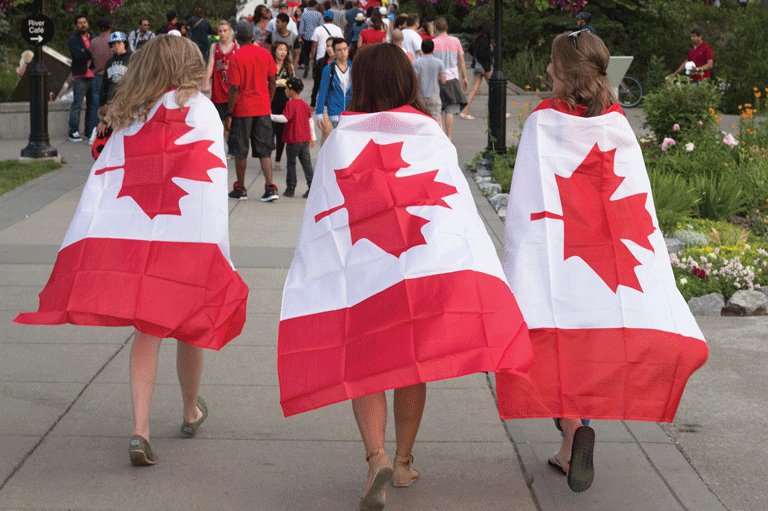
The Judicial Committee of the Privy Council, until 1949 the highest court in — or, rather, out of — the land, more or less rewrote the British North America Act in a series of rulings in the 1880s and 1890s, converting a document that was intended to give primacy to the federal government (see the reservation, disallowance, declaratory, and residual “peace, order, and good government” clauses) into a declaration of provincial rights.
With the addition of the Western provinces, even as the bulk of the population, and political power, remained in Central Canada, the federal government came to be resented over much of the country as a remote, even autocratic presence.
As the pan-French-Canadian nationalism of Henri Bourassa gave way to the Quebec-centred nationalism of Maurice Duplessis and his more liberal-minded successors, Quebecers, too, were encouraged to see the federal government as the government of “les autres” — even though Quebec played a big part in electing it (from 1867 to 1988, just four majority governments were elected that did not also contain a majority of the members from Quebec).
As Quebec’s demands for powers and money to be transferred from Ottawa escalated, were the other provinces to be expected to let that pass without demanding the same?
The provinces found their champions federally, too. The old notion that a part of the federal role was to protect minority rights from the depredations of local majorities — so much a part of Sir John A. Macdonald’s vision of the country — took a blow from Sir Wilfrid Laurier’s compromise in the Manitoba schools question, from which it never recovered.
Until around the Depression, the Liberal Party saw itself as the defender of the interests of the provinces against the federal government; after the Second World War this was more typically the cause of the Conservatives, especially as the federal role began to expand in the 1960s and 1970s, in line with that of the state generally.
In the patriation battles, the provinces were given a great assist by the Supreme Court, which ruled against the Liberal government’s attempt to “bring the Constitution home” unilaterally. The document that resulted was accordingly vastly tilted towards provincial interests, not least with regard to the amending formula, the price of Pierre Trudeau’s much-prized Charter of Rights and Freedoms.
Add in the massive fiscal retrenchment of the 1980s and 1990s, as the federal government tried to rescue itself from the debt hole it had dug for itself in the deficit years — and the increasing perception (and reality) that members of Parliament are no longer sent to Ottawa to represent their constituencies, but, as the saying has it, are sent back to their constituencies to represent Ottawa — and you have today’s desiccated, depleted federal government, unable to do much of anything without the consent of the provinces.
Even an activist government like the present one finds it can do little — on everything from climate change, to health care, to pipelines, to pensions — but plead with the premiers. The danger is not so much that the country will fall apart as drift; if there is less impetus to separation these days, it may be because federalism has become so irrelevant.
Not even enforcement of the common market within our borders, perhaps the quintessential federal role, is considered something that can be safely entrusted to federal authority. Though it has the undoubted constitutional power to strike down provincial trade barriers, Ottawa plainly does not feel it has the legitimacy to do so.
At any rate, it does not dare. The best it can do is to try to coax the provinces into agreeing to open their borders to each other reciprocally, by way of multilateral negotiations, in the style of sovereign states, though with rather less success. Which is why, one hundred and fifty years after Confederation, though we have free trade agreements with dozens of countries around the world, we still don’t have free trade with ourselves.
I want to suggest that these two trends — the decline of a sense of Canadian nationhood and the decline of federal authority — are not unrelated. The reason we are still plagued by hundreds of internal trade barriers, in a way that would not be tolerated in other countries, is not because Canadians are less apprised of the virtues of free trade. Rather, it is because of our attenuated sense of nationhood.
Trade barriers, after all, are supposed to protect “us” from “them.” A Spaniard would think it absurd to put up trade barriers within Spain, not so much because he had strong views on the theory of comparative advantage but because, well, it would be protecting us from us. But Canadians have been encouraged to view each other not as part of a single national us but as a number of different thems, without common interests or values.
This is true more broadly. Democratic government is only possible among a group of people who mutually agree to sacrifice for each other, to defer to each other, to be ruled by each other. The minute the idea takes hold that the government to which they are asked to submit is not their government but someone else’s, the necessary consent of the governed will be withdrawn — if not wholly, then in part.
We can see this most vividly in the failure of the European project, certainly with regard to monetary union and the larger goal of an “ever closer union.” There has never been anything remotely resembling such a thing as a European nation, a single, self-governing people that regarded itself as such.
National governments, consequently, have been unwilling to cede much power to a European government, and certainly not to the European Parliament to which they might answer. Instead, the European Commission is appointed by, and mostly answerable to, national governments; whatever role the European Parliament might have played in calling forth an emerging European national consciousness has failed to materialize.
And yet we are presented, to the south, with a counter-example: the United States of America. Whatever their deep divisions as a country, the idea of Americans as part of “one nation, indivisible” is uncontested and, indeed, incontestable. Though the U.S. Congress is held in disrepute, it is held in disrepute equally over most of the country.
Where there are calls to return powers to the states, it has more to do with arguments of efficiency and good government than with any deeper questions of legitimacy. The federal government has a role in national affairs of which Canadian governments could only dream: Why, there is even a national Department of Education!
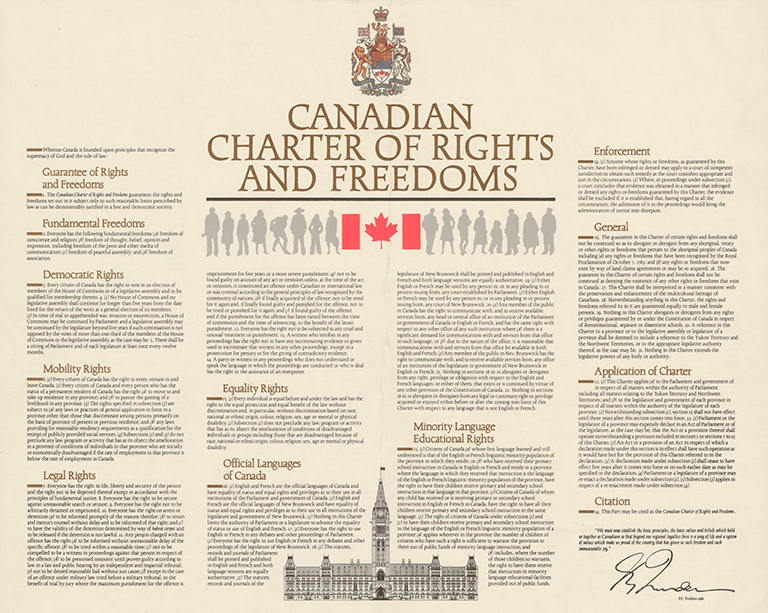
Part of that, of course, is shaped by the historic calamity of the Civil War. But much the greater part of it is that America has realized the dream of our own Fathers of Confederation, the creation of a “political nationality” rooted not in blood or soil but in common values, common aspirations, and common principles of government, all summarized in the Constitution, for which Americans have a reverence bordering on the cult-like.
It was very much part of Pierre Trudeau’s ambition for the Charter that it would play the same nation-defining role here, and perhaps it will over time. But at this stage of our development it is still the case that too many Canadians have absorbed the idea, consciously or unconsciously, that real nations are ethnocultural nations.
I think much of the blame for this should be attached not to Quebec nationalists, or to Indigenous nationalists, or to provincialists, but, odd as it may sound, to classical Canadian nationalism. The latter is the self-obsessed creation of southern-Ontarian elites, not much in evidence now but hugely influential back in the 1960s and 1970s.
They gave us CanCon, the Foreign Investment Review Agency, and the National Energy Program. But their worst legacy was the idea that what matters about nations is that they are different from one another — the “narcissism of small differences” (also observable in today’s more generalized identity politics).
Canadian nationalism of this kind was essentially an attempt to create a kind of ersatz ethnicity: The differences that would define us as separate and apart from the Americans, and therefore justify our distinct nationhood, were not of blood but of cultural identity.
This a largely fictional exercise — it would be difficult to find two peoples on Earth more culturally similar. And the whole exercise of fetishizing difference left classical nationalists peculiarly vulnerable to the objection of identity groups within Canada: Wait a minute, we’re different from you.
The conflict between these two conceptions of nationhood — ethnocultural versus political, predetermined versus self-determined, European versus American — is the subject of much academic literature. It’s not my intention here to rehearse the whole debate. I only want to point out the indispensability of the idea of Canadian nationhood. The whole point of a federation, after all, is to have a federal government — a government with powers to deal with matters that transcend provincial interests and cross provincial boundaries.
If we weren’t interested in having such a government, we could just govern ourselves as ten or thirteen sovereign states and exchange ambassadors. But we will never agree to a meaningful federal government — a government with meaningful powers versus our provincial governments — until and unless we are agreed we are a nation.
The Charter of Rights is one bedrock on which a civic nationalism can be built and strengthened.
The virtue of a “civic” nationalism is that it implies no contradiction with narrower forms of association, including those we might describe as nations: You can be a member of both the Québécois nation and the Canadian nation, without injury to either. For that matter, it implies no contradiction with broader forms, either: As a civic nationalism is not rooted in an obsession with differences with other nations, it need not see its interests as inevitably conflicting with theirs.
A civic idea of Canadian nationhood, rooted in a shared commitment to certain ideals of liberty, democracy, and solidarity, might be broadly similar to that of the United States, or Britain, or any other liberal democracy, but so what? It needn’t be different from others’ to still be ours.
Our ambition should not be to be different from other nations, as if differentness were something valuable in itself, but to be the best exemplar of ideals we might well hold in common with them; to be true not to “thine ownself” but to universal values. “Canada is free,” said Laurier, “and freedom is its nationality.”
The Charter of Rights, then, is one bedrock on which a civic nationalism can be built and strengthened: a pledge to protect the rights of every Canadian citizen, equally, binding upon provincial and federal governments alike and enforced by courts at every level, with the Supreme Court as the final arbiter.
A similar commitment to uphold our economic rights as “citizens of the whole” rather than merely the parts — that is, to trade freely with one another wherever we may live, as spelled out in the Constitution, with the federal government as enforcer — would also do wonders for our national sense of self. But the sine qua non is a federal government that is seen to be much more democratic.
The nationalist project of our times is radical democratic reform at the centre: to make governments more responsible to Parliament, Parliament more representative of the people, leaders more accountable to MPs, and MPs once more the emissaries of the people to Ottawa, rather than the other way around. When Canadians come to see their Parliament as their national assembly, they will in turn be more likely to see themselves as a nation.
The issue, then, is not whether Canada is a nation but whether it can be. Or no, I am sure it can be. Rather, it must be.
We hope you’ll help us continue to share fascinating stories about Canada’s past by making a donation to Canada’s History Society today.
We highlight our nation’s diverse past by telling stories that illuminate the people, places, and events that unite us as Canadians, and by making those stories accessible to everyone through our free online content.
We are a registered charity that depends on contributions from readers like you to share inspiring and informative stories with students and citizens of all ages — award-winning stories written by Canada’s top historians, authors, journalists, and history enthusiasts.
Any amount helps, or better yet, start a monthly donation today. Your support makes all the difference. Thank you!
Themes associated with this article
Advertisement


